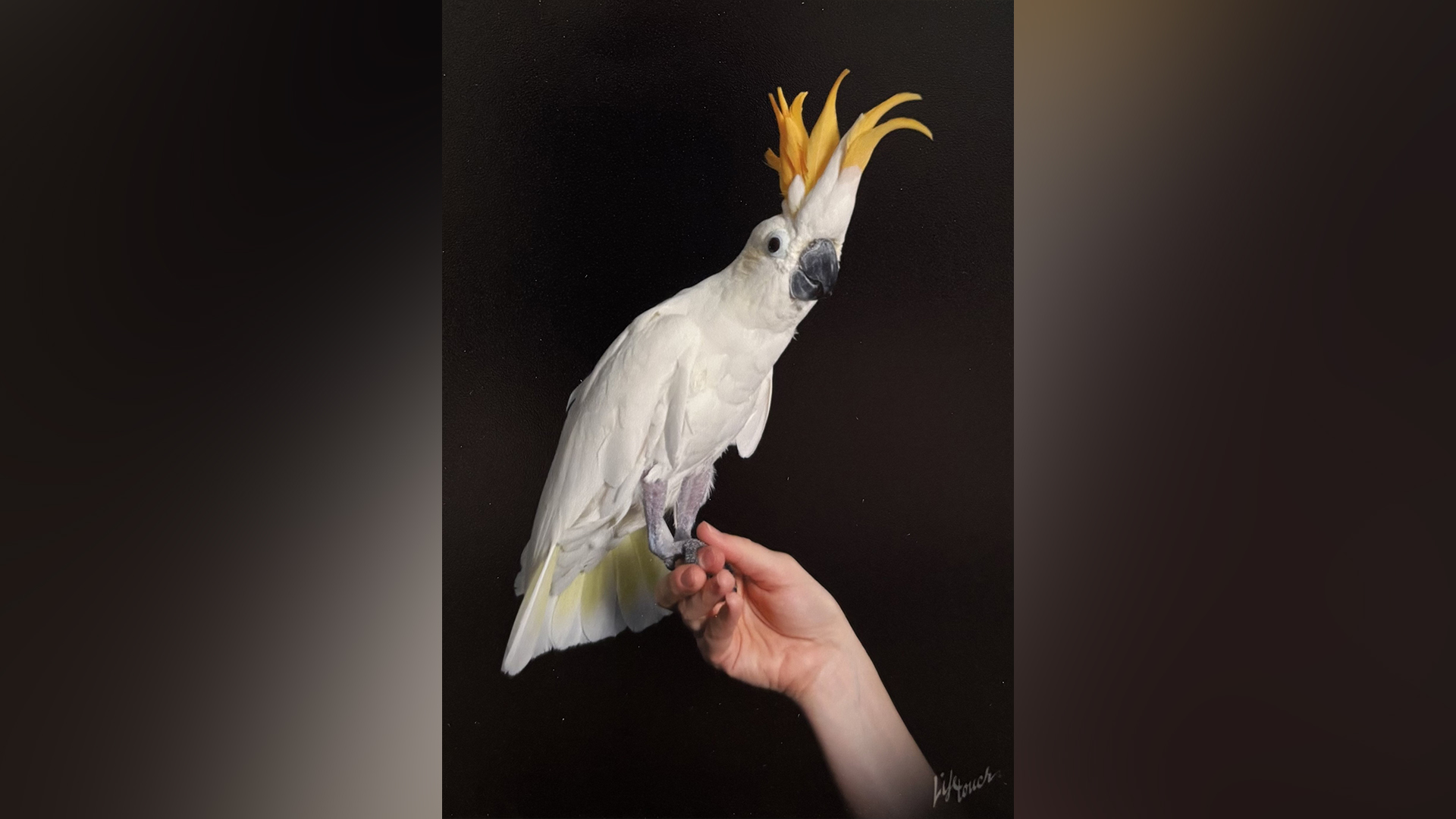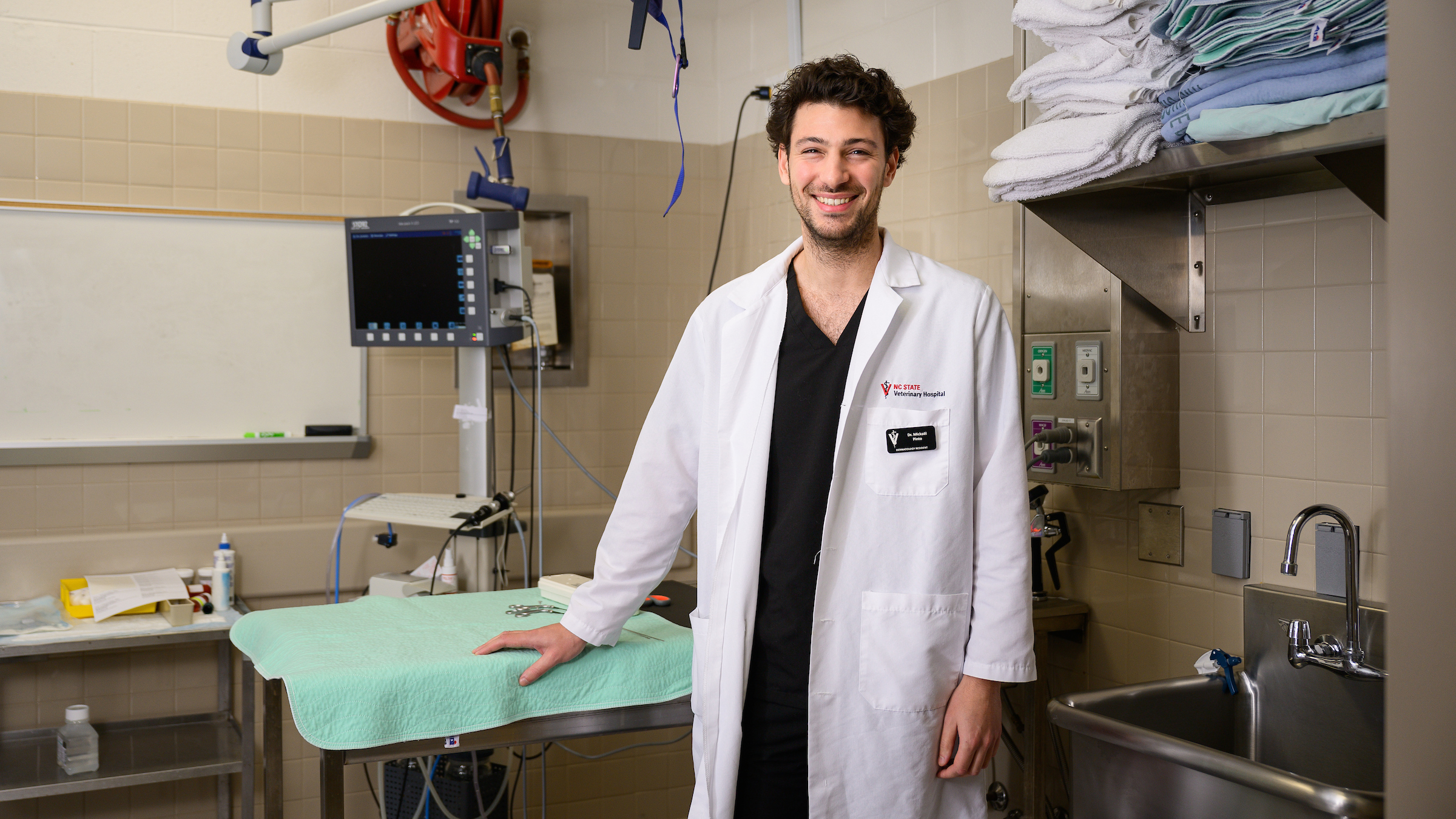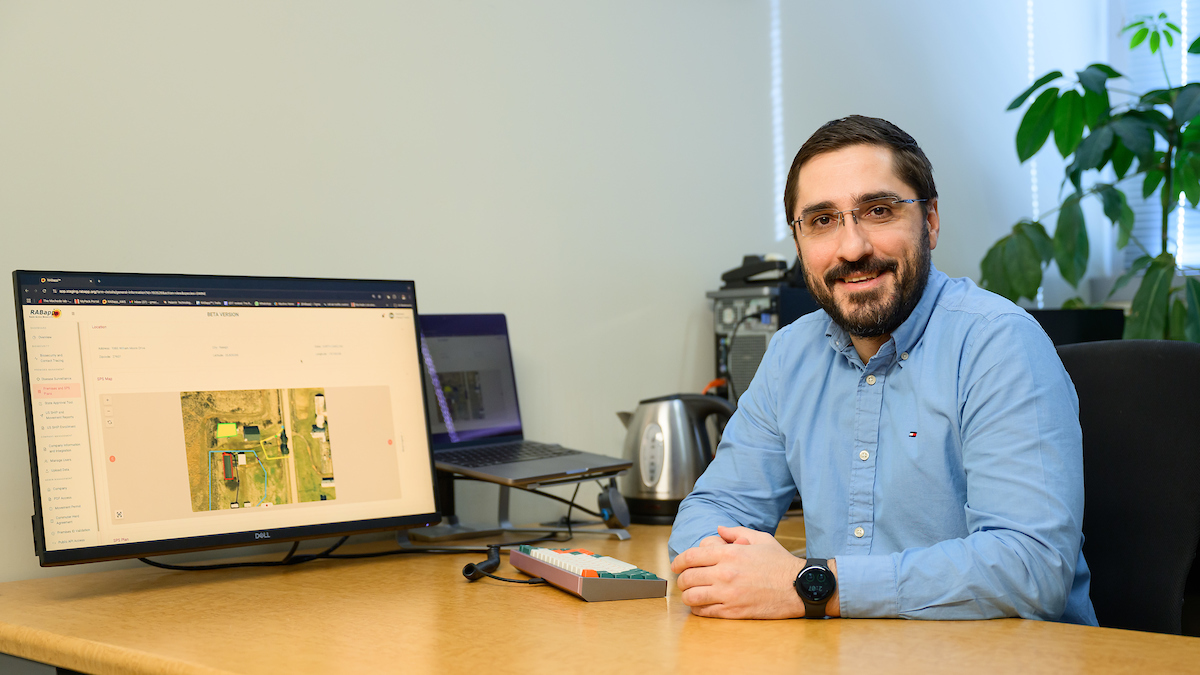Cynthia Wilson, Class of 2011
Job title: On-site contractor toxicologic veterinary pathologist, Integrated Laboratory Systems/National Institute of Environmental Health Sciences
Describe your current position and what led to your job
I am a researcher in toxicologic pathology, studying the effects of agents in the environment on animals to identify possible hazards to human health. I found out about pathology after entering veterinary school, then did summer internships at NIEHS and GlaxoSmithKline and presented posters at meetings, which solidified my interests.
Describe job opportunity trends in your industry. What does the future look like for your industry?
Jobs are somewhat dependent on the economy and changes in the pharmaceutical industry. Right now there are plenty of jobs. Many employers expect or desire a Ph.D. in addition to board certification in pathology.
What advice would you offer alumni/students looking for a job in your field?
Get training in molecular techniques and strongly consider a Ph.D. Look at job advertisements on the American College of Veterinary Pathologists and Society of Toxicologic Pathology websites to see requirements and what people are looking for. Go to ACVP or STP meetings, present posters and network.
What is the best career advice you have received?
Keep your mind open to new opportunities.
Share one “do” or “don’t” that you have learned regarding resumes, interviewing, networking or job searching tactics.
Don’t put classes on your resume unless they are “above and beyond” and pertinent. Have someone you trust proof your resume. Inconsistency in format and spelling or grammar errors drive people nuts. The squeaky but polite wheel gets the grease — go outside your comfort zone and network. Meetings are the easiest way to do this and people want to encourage vet students.
Anything else you would like to add?
Leave behind the competitiveness with others that got you into vet school. Now is the time to collaborate with your peers at your school and at other schools. I passed boards on the first go because I worked with peers at different residency programs. You never know who will hire you someday. Try to stay with vet students when you visit other places and volunteer to do the same. Participate. I want to see that students were part of clubs/activities and tried to help other students with opportunities.


